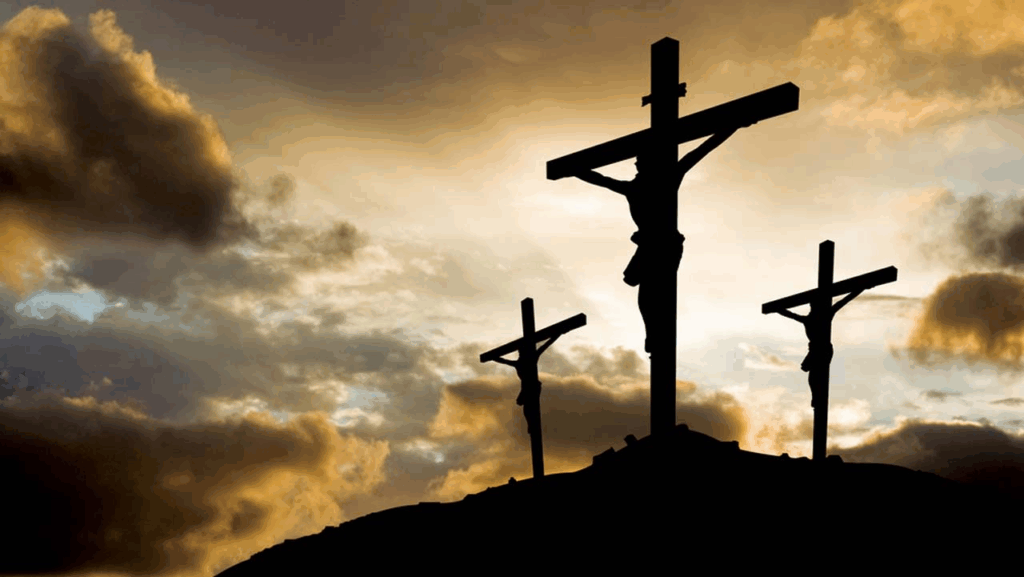In the early hours of Friday morning, Jesus was subjected to covert trials among Jewish and Roman leaders. Ultimately, Jewish leaders swayed public sentiment against Him, and Pilate capitulated to demands that He be crucified.
Here, Jesus was not only buffeted with the pains of ridicule, whip, assault, and crucifixion, but once again He suffered pains beyond human comprehension as He took upon Himself the work of atonement.
As Tad Callister relates, “He took upon him infinite suffering, but chose to defend with only mortal faculties, with but one exception–his godhood was summoned to hold off unconsciousness and death (i.e., the twin relief mechanisms of man) that would otherwise overpower a mere mortal when he reached his threshold of pain. For the Savior, however, there would be no such relief. His divinity would be called upon, not to immunize him from pain, but to enlarge the receptacle that would hold it. He simply brought a larger cup to hold the bitter drink.”
In the moment of most profound agony, He cried out, “My God, my God, why hast thou forsaken me?” (Matthew 27:46). Callister continues, “Here was a God whose knowledge reigned supreme, yet there was still a ‘why’–a gap between his cognitive powers and empirical senses. He had encountered a dark zone, an intellectual ‘out of bounds,’ even for him. Perhaps he did not expect this. Perhaps he did not contemplate a total abandonment. Perhaps he did not comprehend in advance the totality of the aloneness he must endure. Perhaps his infinite mind knew and understood all that is possible to know in advance, but even this fell short of the hard-core reality that comes from actual experience. In any event, it was a soul-wrenching moment. Would he continue to have faith in that God who had now withdrawn, [of whom he had] only hours earlier declared, ‘I am not alone, because the Father is with me’ (John 16:32)?”
Jesus never wavered in His love and loyalty for His Father, even in abandonment while racked with infinite pain. He set the perfect example and, in so doing, overcame all death and hell.
This Good Friday, let’s look to Christ as the Exemplar. That we, too, can trust our Father despite our pains and feelings of aloneness. Through Christ, we can know that our trials are temporary and relief will come.

Comments on this entry are closed.